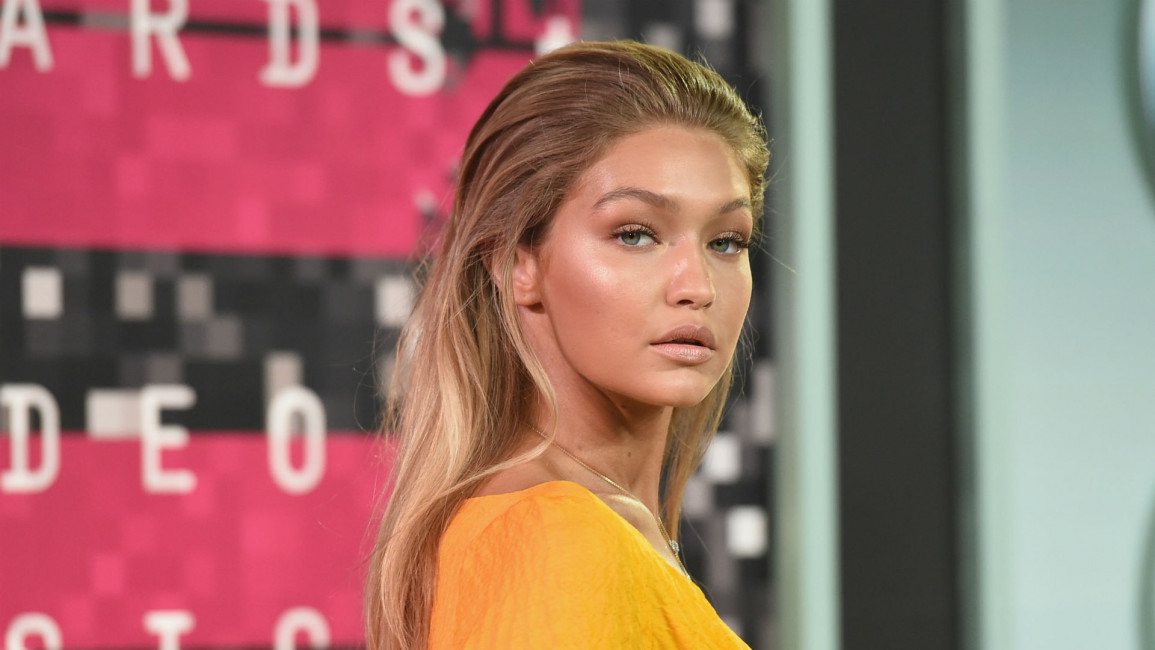
Gigi Hadid will not liberate Palestine. But her silencing proves we can't dismiss celebrity solidarity
Controversy erupted once again after a public figure had dared to transgress and express even the mildest form of support for the most taboo of causes: Palestine.
Vogue magazine made an Instagram post about Palestinian-American model Gigi Hadid’s intention to donate revenues from her fashion week appearances to humanitarian efforts for Ukrainians and Palestinians. Following a tantrum from the likes of StopAntisemitism.Org – who started levelling accusations of antisemitism and expressing anger at the preposterous suggestion that Palestinians may be humans deserving of aid – Vogue erased any mention of Palestine from its caption. In turn, supporters of Palestine expressed anger at Vogue’s acquiescence to pro-Israel pressure. And so, again, going where the wind blows, Vogue edited the caption once more and reinstated the original mention of Palestine.
Later, Hollywood actor Mark Ruffalo shared an article discussing the Vogue incident and criticising liberals’ cowardice and lack of principles when faced with the question of Palestine. Ironic, however, is Ruffalo’s lack of awareness that he may also be the liberal in question. Last May, during Israel’s relentless massacring of Palestinians in Gaza and during its attempts to uproot Palestinians from their homes in Sheikh Jarrah, Mark Ruffalo issued an apology in which he rescinded his description of Israel’s actions as a ‘genocide’, saying that the description “is being used to justify antisemitism here and abroad”.
Interestingly, his apology came after an ad was published in the New York Times accusing multiple other celebrities, including Gigi Hadid, of antisemitism for expressing support for Palestinians.
In essence, the behaviour Ruffalo was now criticising Vogue for was behaviour he himself had previously engaged in. His actions are arguably worse. Whereas there is no expectation that Vogue – a multi-million dollar corporation – would have a genuine moral or political compass, Ruffalo had actually compromised on his beliefs as he threw Palestinians under the bus at a time when principled commitment was most urgently needed.
The entire Hadid-Vogue-Ruffalo situation that transpired is, in the grand scheme of things, ultimately materially inconsequential to the Palestinian cause. However, it is important to pay notice to what it signifies about the current circumstances the Palestinian solidarity movement finds itself in.
''When figures such as Mark Ruffalo or celebrity magazines such as Vogue capitulate to pro-Israel bullying, they fuel the harmful debate that takes as its premise the false notion that it is a supposedly thin line between the Palestinian cause and antisemitism.''
Zionist groups are engaged in relentless pursuit and harassment of those who express even the most benign forms of support for Palestinians, and their primary tactic is the weaponisation of accusations of antisemitism. From chasing after and threatening academics’ livelihoods, to targeting celebrities, to creating entire websites dedicated to doxing regular people, the pro-Israel movement has made it abundantly clear that no matter who you are, supporting Palestinians is your ticket to an endangered livelihood.
However, in addition to all of this, such accusations of antisemitism – and the public debates that accompany them – fundamentally play the sinister function of distraction. At the most basic level, these are attempts to weaken the Palestine solidarity movement by keeping it entrenched in a cycle of reaction and defensiveness, constantly having to expend resources on responding to such bogus and dishonest accusations.
It also distracts from the ability to shed a spotlight on the real and imminent violence that is being committed against Palestinians at the very same moment. At the time when the media and the public where hyper-focused on the Vogue-Hadid situation, the campaign to free Ahmad Manasra (who has been imprisoned in Israeli jails since he was 13 years old), or Palestinians’ mobilisation in the Naqab against their impending ethnic cleansing, did not get a fraction of the needed public attention and mobilisation.
.@voguemagazine reported that Gigi Hadid is donating her earnings to relief efforts in Ukraine and Palestine.
— Mohammed El-Kurd (@m7mdkurd) March 8, 2022
Vogue then removed “Palestine” from its report following backlash from Zionists, some of whom likened Vogue’s post to “calling for a 2nd Holocaust.”
A similar situation took place when the media and public officials were in an uproar over Emma Watson’s benign and vague pro-Palestine Instagram post. An entire movement being led by Palestinian prisoners on hunger strikes was overshadowed by the conversation about Emma Watson’s supposedly ‘antisemitic’ post.
Unfortunately, the combination of celebrity culture and social media platforms bestows these figures with the unique power to set the terms of the public conversation and to recalibrate the discursive parameters in which we can operate. So, when figures such as Mark Ruffalo or celebrity magazines such as Vogue capitulate to pro-Israel bullying, they fuel the harmful debate that takes as its premise the false notion that it is a supposedly thin line between the Palestinian cause and antisemitism.
It is therefore our duty to be antagonistic and to set our own terms for the Palestinian cause and movement. Not only must we reject this reactive debate that continues to centre antisemitism accusations, but we must also push to centre the Palestinian realities that are being side-lined in the course of these debates. It is also imperative that we engage with such celebrity figures and such institutions with scepticism, bearing in mind that more often than not they are driven by their instinct for self-preservation in the public stage rather than by moral principle.
The author is writing anonymously to protect their identity.
Have questions or comments? Email us at: editorial-english@alaraby.co.uk
Opinions expressed in this article remain those of the author and do not necessarily represent those of The New Arab, its editorial board or staff.


![President Pezeshkian has denounced Israel's attacks on Lebanon [Getty]](/sites/default/files/styles/image_684x385/public/2173482924.jpeg?h=a5f2f23a&itok=q3evVtko)



 Follow the Middle East's top stories in English at The New Arab on Google News
Follow the Middle East's top stories in English at The New Arab on Google News


